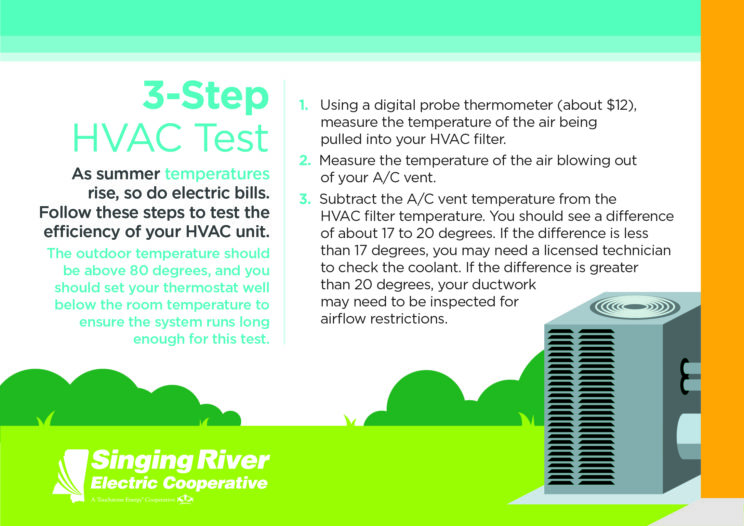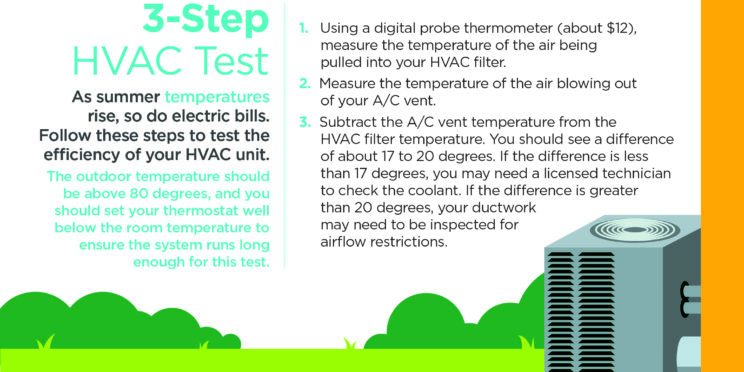Ah, summer. Cookouts, swimming pools, camping––it’s the perfect time to enjoy the outdoors with family and friends. And when it’s time to come back indoors, there’s nothing better than that cool blast you feel from your home’s air conditioning unit.
Your heating, ventilating and air conditioning (HVAC) system is essential to keeping your home comfortable during summer months, and if it breaks down, it’s also the most expensive equipment to repair or replace. Luckily, there are simple steps you can take to lengthen the life of your HVAC system.
Change or clean filters. Dirty filters block airflow, which can greatly decrease the efficiency of your system. The Department of Energy recommends changing or cleaning filters every month or two during the cooling season. If your unit is in constant use or is subjected to dusty conditions or pet hair, consider checking filters more frequently.
Clean the HVAC unit. Outdoor condenser coils can become clogged with pollen, dirt and small debris. Use a hose to spray the HVAC unit once each season to ensure maximum airflow. (Warning: Do not use a pressure washer to do this, as it can damage the equipment.)
Clear space around the HVAC unit. Dryer vents, falling leaves and grass left behind from the lawnmower can create buildup. Remove any debris around the HVAC unit. If you have foliage near the unit, trim it back at least 2 ft. around the condenser to increase airflow.
If you want to evaluate the efficiency of your HVAC system, try this quick test. Follow the steps in the graphic below:

The outdoor temperature should be above 80 degrees, and you should set your thermostat well below the room temperature to ensure the system runs long enough for this test.
- Using a digital probe thermometer (about $12), measure the temperature of the air being pulled into your HVAC filter.
- Measure the temperature of the air blowing out of your A/C vent.
- Subtract the A/C vent temperature from the HVAC filter temperature. You should see a difference of about 17 to 20 degrees. If the difference is less than 17 degrees, you may need a licensed technician to check the coolant. If the difference is greater than 20 degrees, your duct work may need to be inspected for airflow restrictions.
You should also have your HVAC system periodically inspected by a licensed professional. The frequency of inspections depends on the age of your unit, but the Department of Energy recommends scheduling tune-ups during the spring and fall, when contractors aren’t as busy.
When HVAC equipment fails, it’s inconvenient and uncomfortable––especially during the dog days of summer. Remember, your HVAC system runs best when it’s regularly cleaned and serviced. With a little maintenance along the way, you can add years to your system’s lifespan.
Abby Berry writes on consumer and cooperative affairs for the National Rural Electric Cooperative Association, the national trade association representing more than 900 local electric cooperatives. From growing suburbs to remote farming communities, electric co-ops serve as engines of economic development for 42 million Americans across 56 percent of the nation’s landscape.


